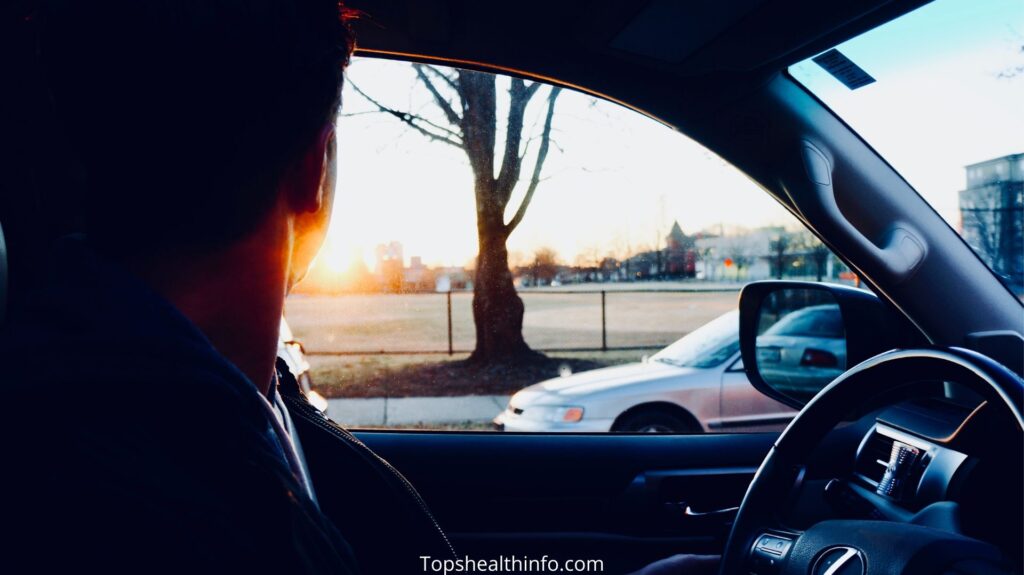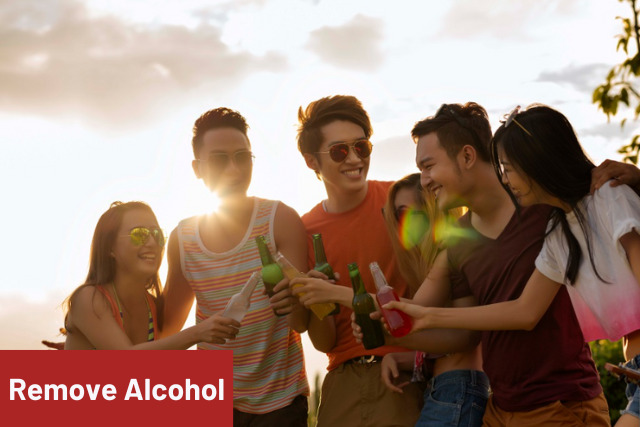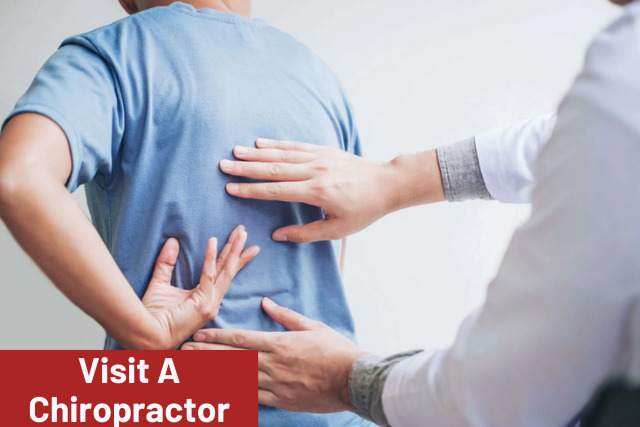
How To Stop Using Alcohol And Drugs During Driving? Drinking alcohol and drugs are becoming a common problem in the modern world. While stress and depression because of work and personal issues are increasing with each passing day, people have started to confide more and more in alcohol and other intoxicating substances.
Almost everyone likes to have a drink now and then and it’s not an issue getting away from the issues for a little while. However, getting addicted and relying on intoxicants completely for your peace of mind is extremely wrong.
No matter what the reason, many people hit the roads while drunk. You might not think as something serious but, it’s a growing pandemic. Hundreds of car accident injuries are caused by driving under the influence. In the USA alone we can say that one person dies every 50 minutes because of drunk driving. This totals to 30 deaths (approximately) every single day!
Effect Of Alcohol On The Driving Ability Of An Individual
Drunk driving is deadly – not just for the individual under the influence but also for the other innocent people on the roads. It can get you arrested or cause a fatal car accident.
To understand how alcohol reduces the normal functionality of the brain, it is important to understand what its consumption does to the human body. It’s clear that alcohol reduces brain function by reducing its thinking, muscle coordination, and reasoning capacity: all of them being the most fundamental aspects of driving a vehicle safely.
The negative impact and vibes on the central nervous system increase significantly when the alcohol levels increase in the body. Alcohol is directly absorbed through the stomach walls and then in the small intestine. After this, it passes in the blood and stays there till the liver metabolizes it.
Some of the most significant side effects of alcohol consumption are:
- Exaggerated behavior
- Loss over muscles
- Loss of judgment
- Increase in body temperature
- Poor coordination
- Loss in memory
These are some of the most common side effects of alcohol. Having all these qualities at their maximum is crucial for a driver to have at any cost.
Alcohol And Drugs Facts About Driving Under The Influence Of Intoxicants
- The effect of alcohol and drugs will not wear out by consuming things like coffee, lemonade, or taking a cold shower. The effect will completely wear out with time depending on the number of intoxicants you have consumed. Therefore, even after a nice cold shower, you are still at risk.
- In 2013, drivers with BAC rates of 0.08 or higher who were involved in major collisions, one in three were aged 21 and 24 years of age (33%). The next two biggest classes were 25 to 34 (29%) and 35 to 44 (24%).
- To drivers under the age of 21, the U.S. maintains a non-tolerance policy that would not require any drug to be in the bloodstream when behind the wheel. The effects may entail heavy penalties, denial of the license, or imprisonment.
- Almost 10,000 people were a victim of drunk driving in 2011 alone.
- Traffic fatalities are the leading cause of death for teenagers, and about 1/3 of such deaths include alcohol or other drugs, and children and teens who participate in drinking at an early age are 7 times more likely to engage in drug-related incidents throughout their lifetime.
How To Stop Using Alcohol And drugs
By now, it is understandable that alcohol and drugs are an escape from reality for most people and this can turn into a seriously deadly addiction. If you have been an addicted intoxicated driver, it is now time to make some changes in your personal life.
Stop using alcohol and drugs not so easy. If you can stop drunk driving, it is obvious that the risk of car accident injuries caused by driving under the influence will reduce significantly.
Some of the most effective ways of reducing alcohol consumption are:
Start With Some Deadlines And Goals
If you’re trying to reduce your alcohol consumption, make a decision on which times you’re going to drink alcohol and also how many alcoholic beverages you’re going to drink per day. Seek to devote at least two days a week that you’re not going to drink at all. The same goes for the people who are addicted to drugs other than alcohol.
Remove Alcohol

What is not in sight will not tempt you that much. Removing all the alcoholic beverages and drugs from within your normal range of reaching is extremely important. It will help you divert your mind elsewhere and help you overcome this habit.
Note Down Everything
Keep note of any moment you get a drink for at least three or four weeks. Involve details on what you were doing; about how much you were attempting to drink, and where you were. Compare that to your target. When you have difficulty sticking to your target, speak to your doctor or another healthcare provider.
Find The Right Program For Yourself
Everybody’s circumstances are different from each other, and it’s also necessary to find a plan which feels good for you. Any drug recovery care plan will be adapted to the particular challenges and circumstances.
Visit A Chiropractor

Alcohol and drug addiction can lead to severe nerve damage and deteriorate your senses over time. If you are trying to make changes in your lifestyle, it is important to do something of those damaged nerves.
A chiropractor will help your nervous system regain its lost health over a number of sessions and you will feel extremely active and healthier.
Having a healthy nervous system means that your organs will be in much better shape and you will start to get back in a normal addiction-free lifestyle.
Conclusion:
Thousands of people in the US alone give their life as a victim of intoxicant driving. It is important to get rid of such habits by making a change to your regular lifestyle and seeking the services of a chiropractor who would make adjustments to the nervous system for a more active and healthier you. I hope so this useful information will help you to stop using alcohol and drugs during driving.
Also Read
- lifetime-fitness-membership-prices-locations
- membership-levels-at-lifetime-fitness
- everything-you-need-to-know-about-la-fitness
- 40 Junk Food List | Healthy And Unhealthy Food
- Lifetime Onyx Membership: What Is It- Advantage & Price
- What is Ursolic acid? Benefits, Side effects and Supplements
- 5 Best Ingredients to Increase Testosterone Levels Naturally
- 6 Benefits of Biotin – How It May Protect Your Health
- Keto Diet Advantages And Disadvantages
FAQs on Using Alcohol and Drugs During Driving
How can I stop using alcohol and drugs while driving?
To stop using alcohol and drugs while driving, it’s essential to take the following steps:
- Recognize the dangers: Understand the risks associated with driving under the influence of alcohol and drugs, including impaired judgment, slowed reaction times, and increased chances of accidents and legal consequences.
- Seek support: Reach out to a trusted friend, family member, or a professional counselor to discuss your struggles and develop a support system.
- Create a plan: Make a commitment to avoid driving under the influence by creating a plan that includes strategies for avoiding triggers, finding alternative transportation options, and developing healthy coping mechanisms.
- Get treatment if needed: If you are struggling with alcohol or drug addiction, consider seeking professional treatment such as counseling, therapy, or support groups to address the underlying issues and develop healthier habits.
- Practice self-care: Engage in activities that promote overall well-being, such as regular exercise, healthy eating, getting enough sleep, and managing stress effectively. These practices can reduce the urge to rely on substances while driving.
What are some alternative transportation options if I can’t drive under the influence?
There are several alternative transportation options available to avoid driving under the influence:
- Designated driver: Arrange for a sober friend or family member to drive you.
- Public transportation: Utilize buses, trains, or subways if available in your area.
- Ride-sharing services: Use ride-sharing apps like Uber or Lyft to get a safe and sober ride.
- Taxi or cab services: Call a local taxi or cab company for transportation.
- Walking or biking: If the destination is nearby and safe, consider walking or biking instead.
Are there any legal consequences for driving under the influence?
Yes, driving under the influence of alcohol or drugs can have severe legal consequences. Penalties can vary depending on jurisdiction, but they may include fines, license suspension, mandatory education programs, probation, community service, and even imprisonment. Additionally, a DUI conviction can lead to increased insurance rates, employment difficulties, and damage to your reputation.
How can I resist peer pressure to drink or use drugs while driving?
Resisting peer pressure can be challenging, but there are strategies you can employ:
- Be assertive: Clearly and confidently communicate your decision not to drink or use drugs while driving.
- Suggest alternative activities: Propose non-alcohol/drug-related activities or offer to be the designated driver for others.
- Surround yourself with supportive friends: Choose to spend time with individuals who respect your choices and share your commitment to driving sober.
- Plan social outings in advance: Ensure that social events include activities that do not revolve around alcohol or drug use, such as going to movies, having game nights, or enjoying outdoor activities.
Where can I find additional resources or drug use while driving?
Several resources can provide additional support in overcoming alcohol or drug use while driving:
- Substance abuse helplines: National or local helplines can provide information, guidance, and referrals to treatment resources.
- Support groups: Consider joining support groups like Alcoholics Anonymous (AA) or Narcotics Anonymous (NA) for a supportive community of individuals facing similar challenges.
- Counseling or therapy: Professional counselors or therapists can help you address underlying issues and develop strategies for maintaining sobriety while driving.
- Online forums and websites: Numerous online platforms provide information, advice, and support for individuals seeking to overcome substance use issues.
